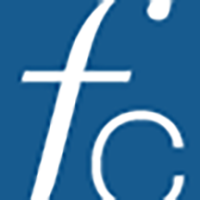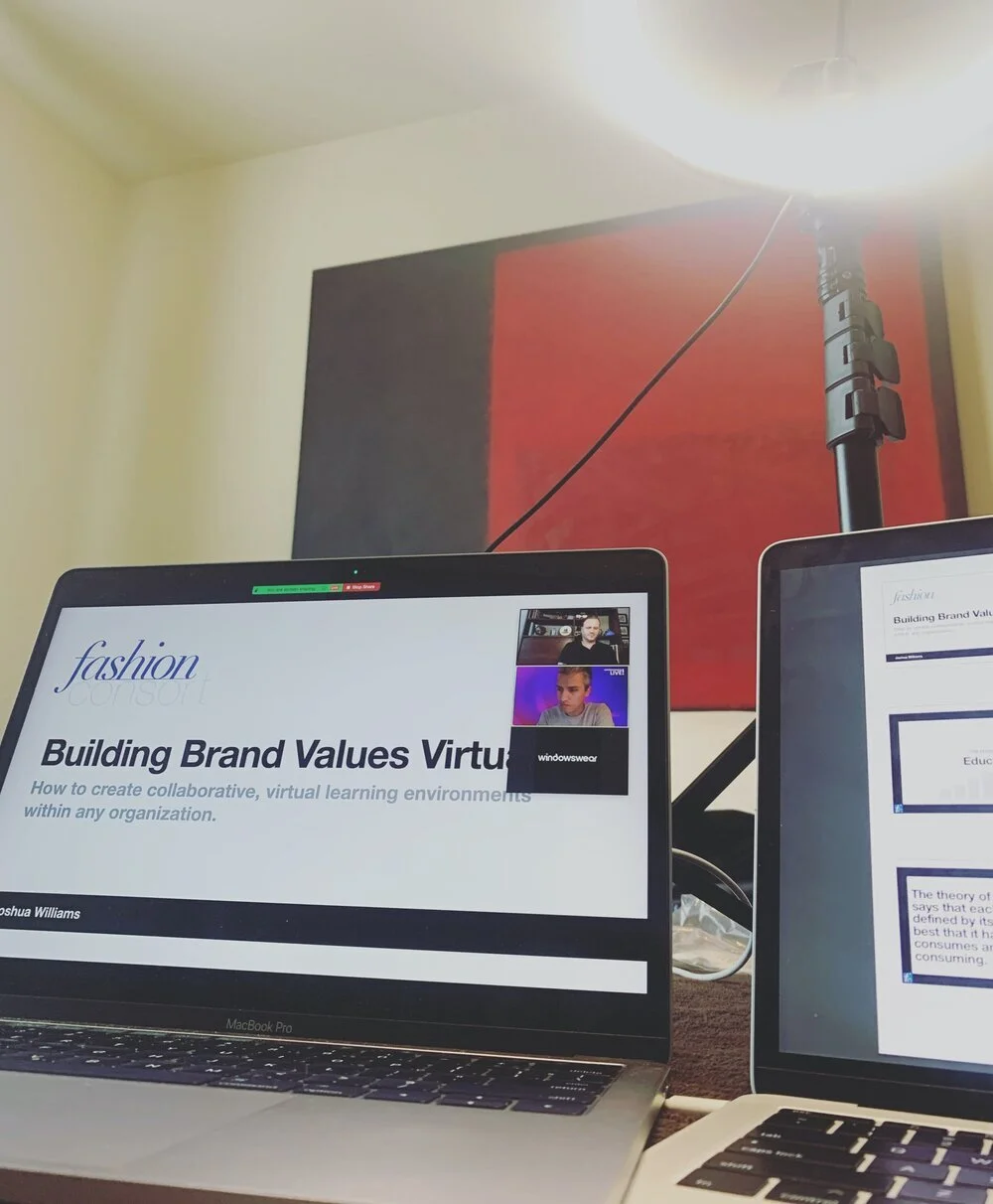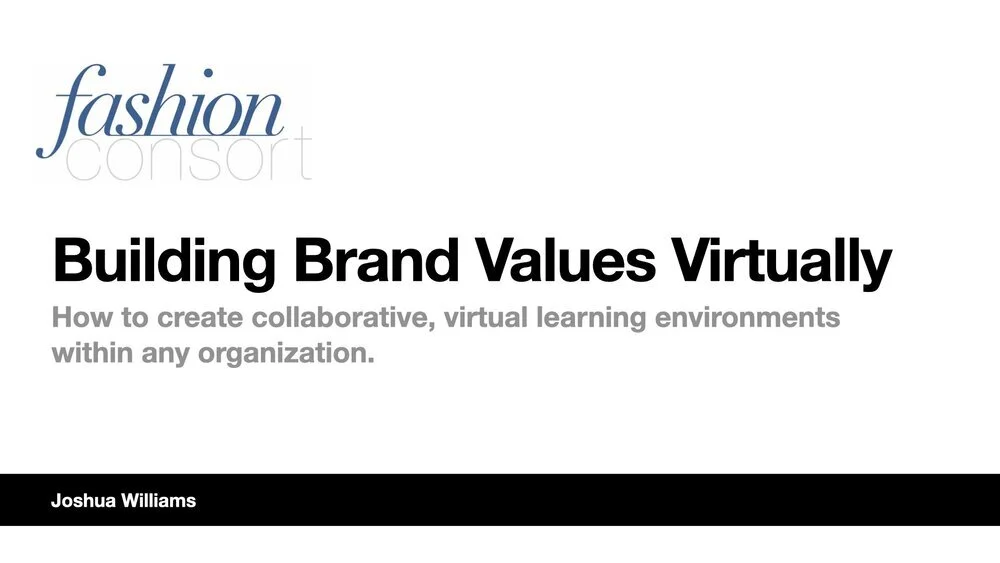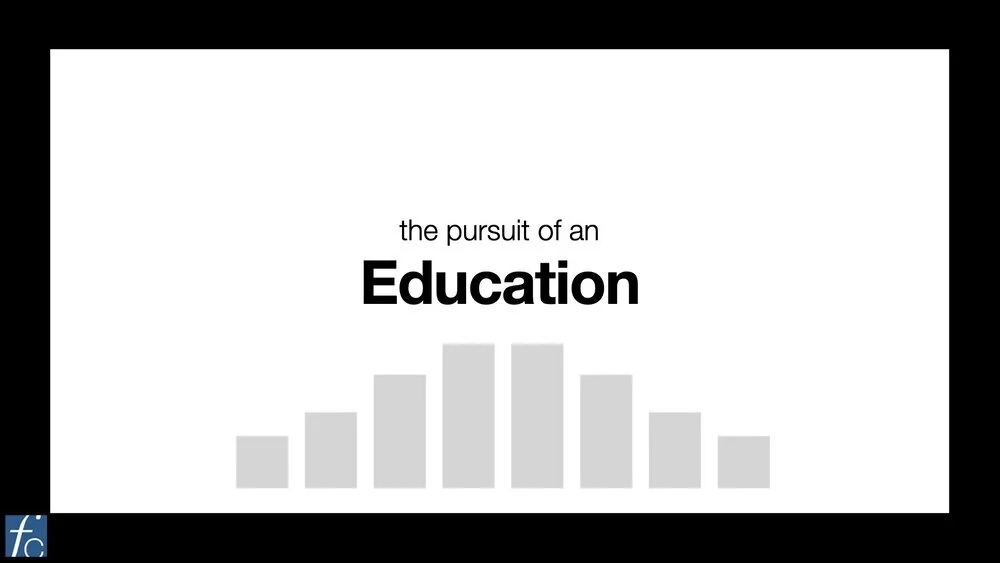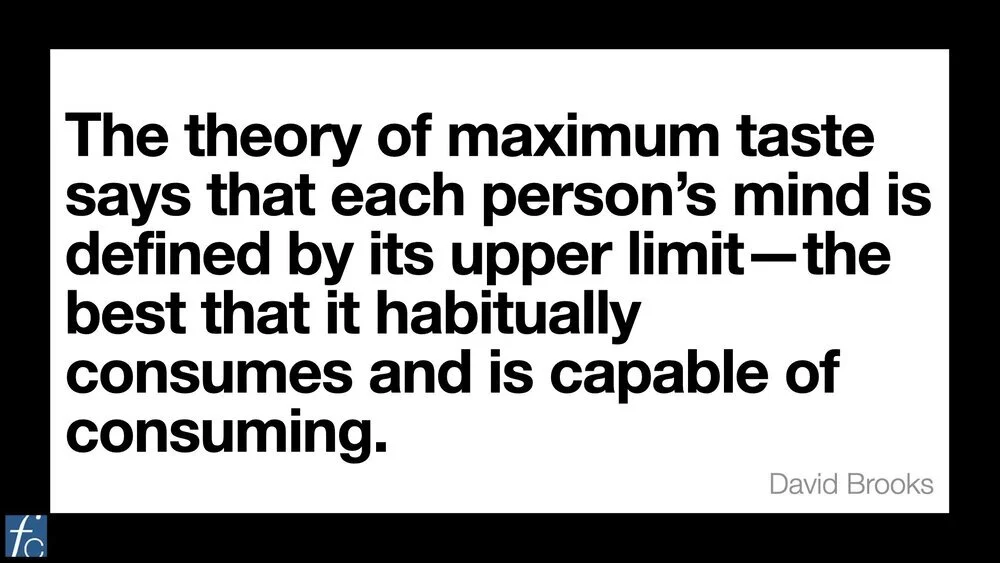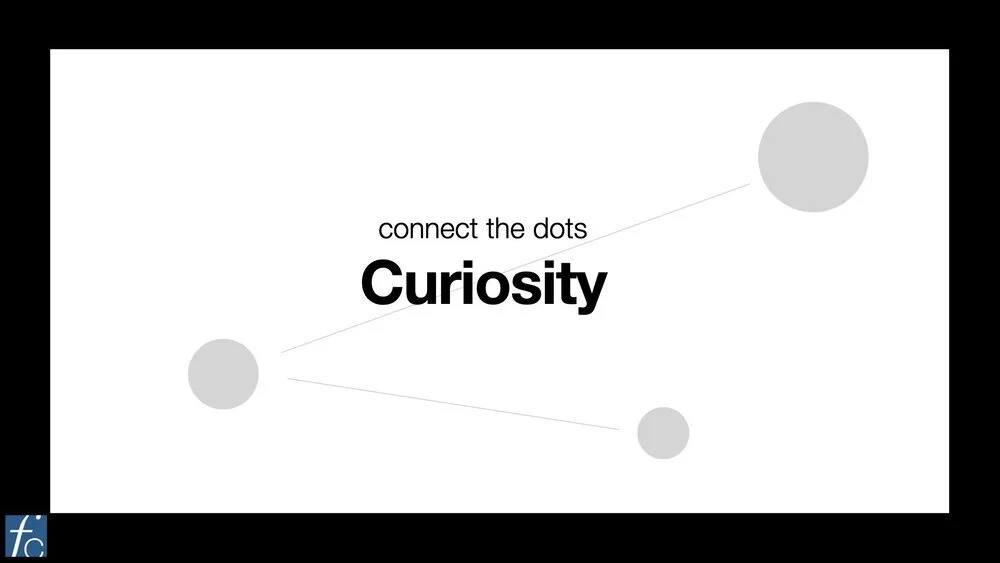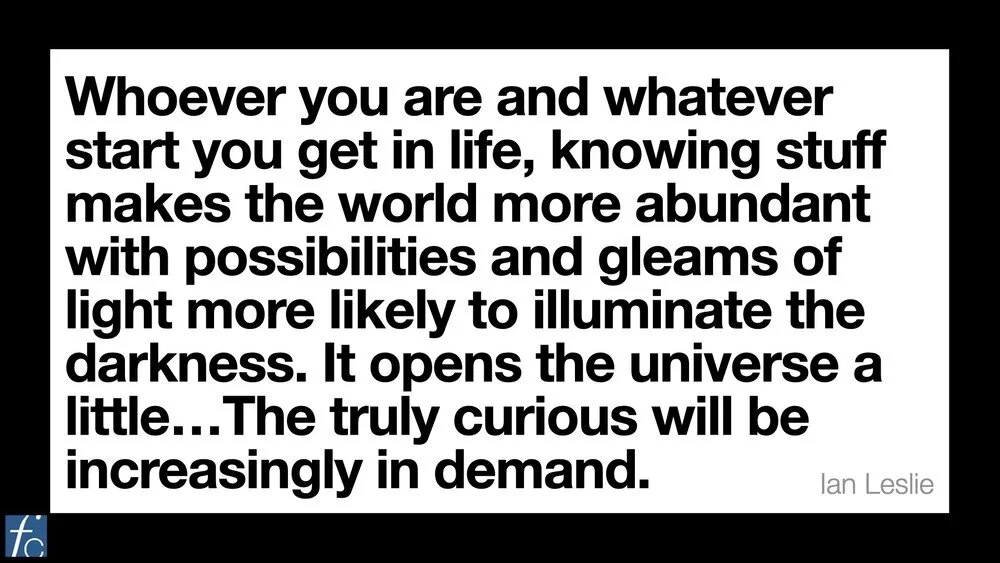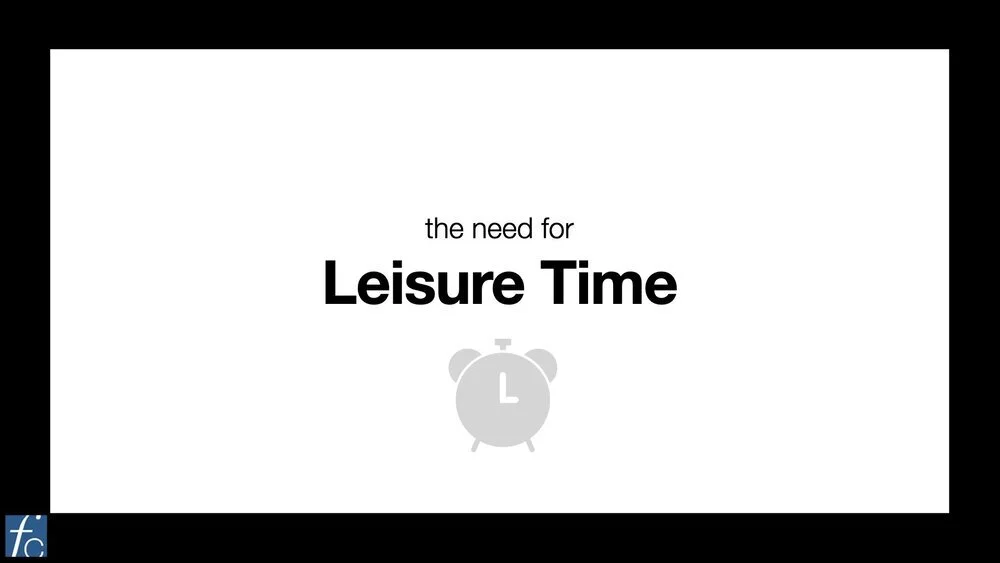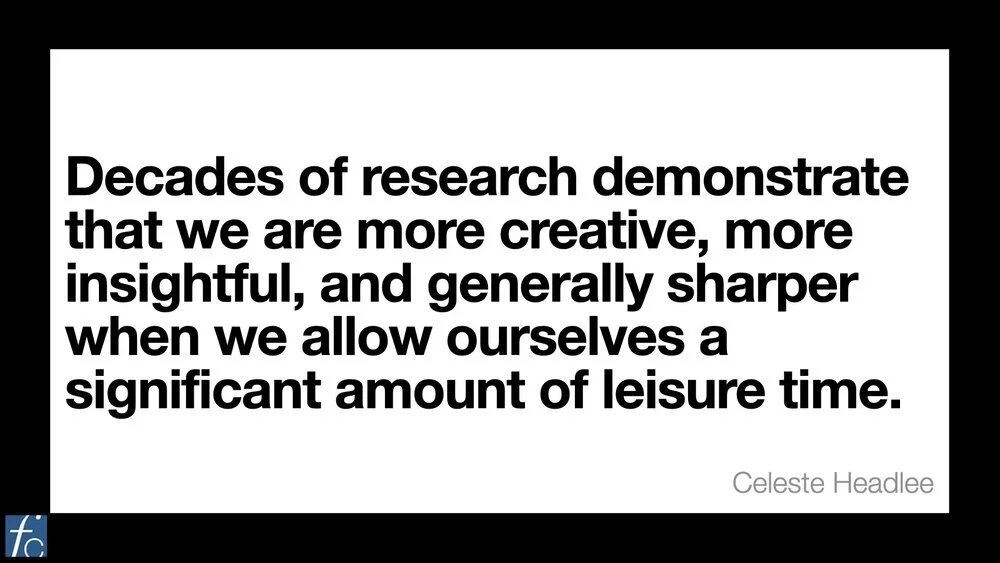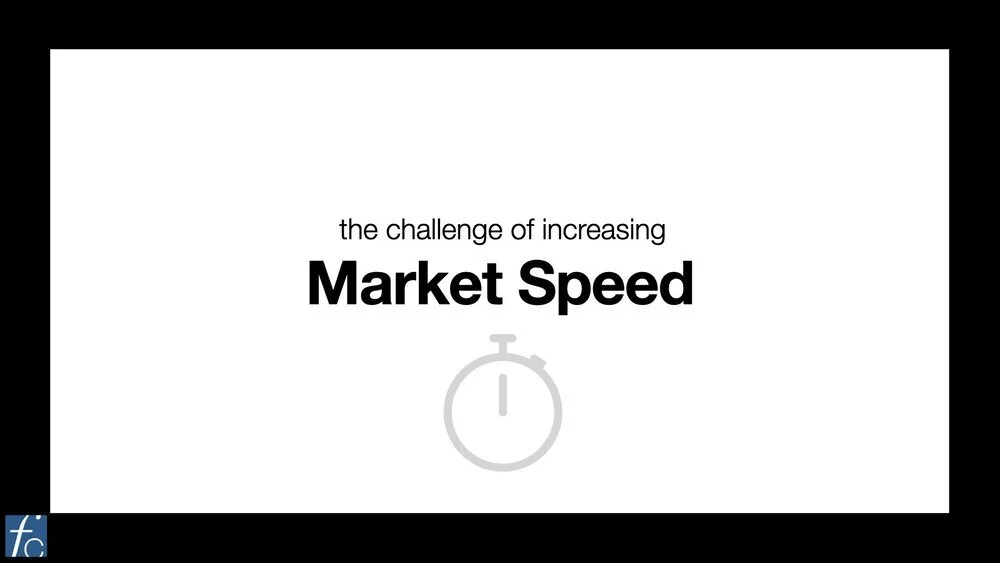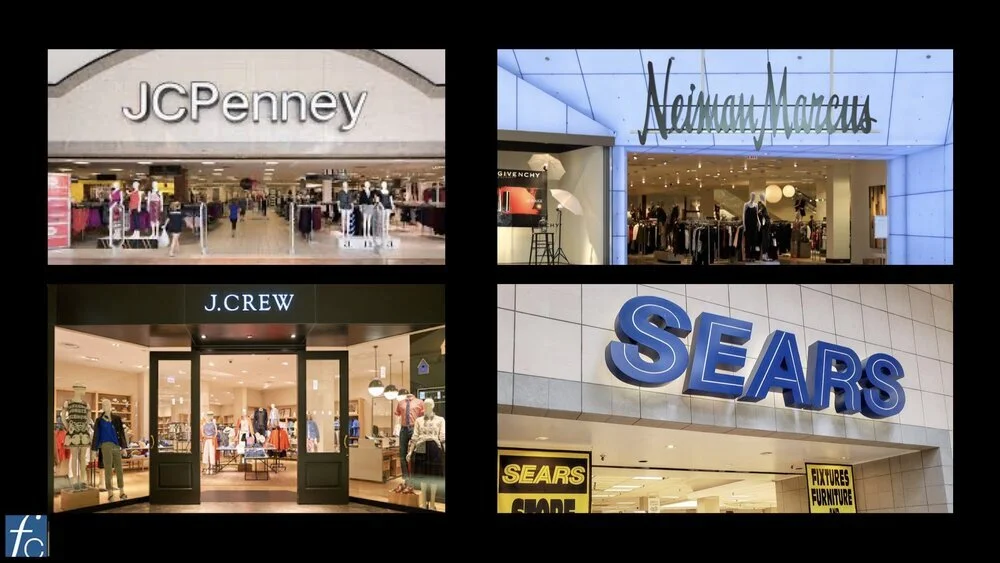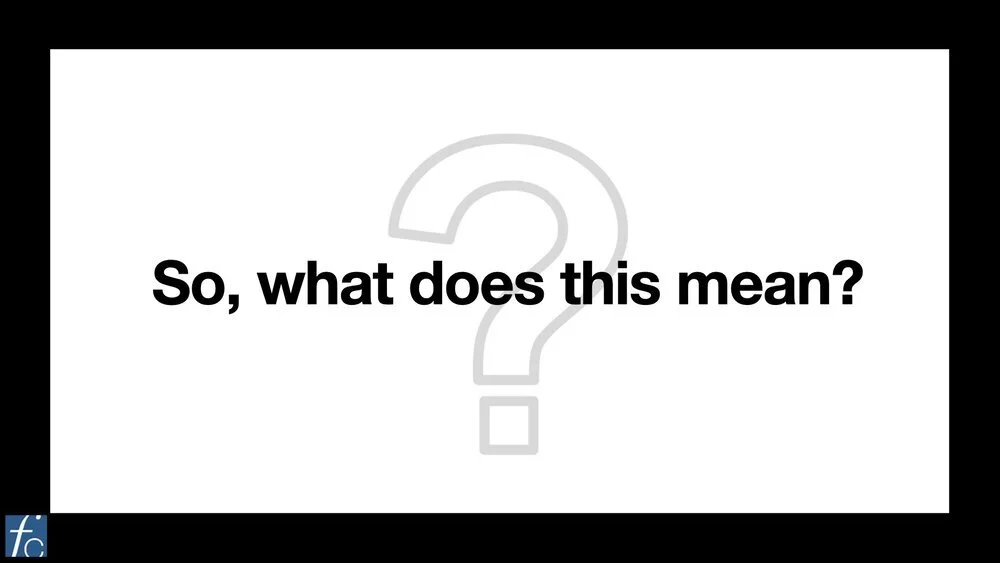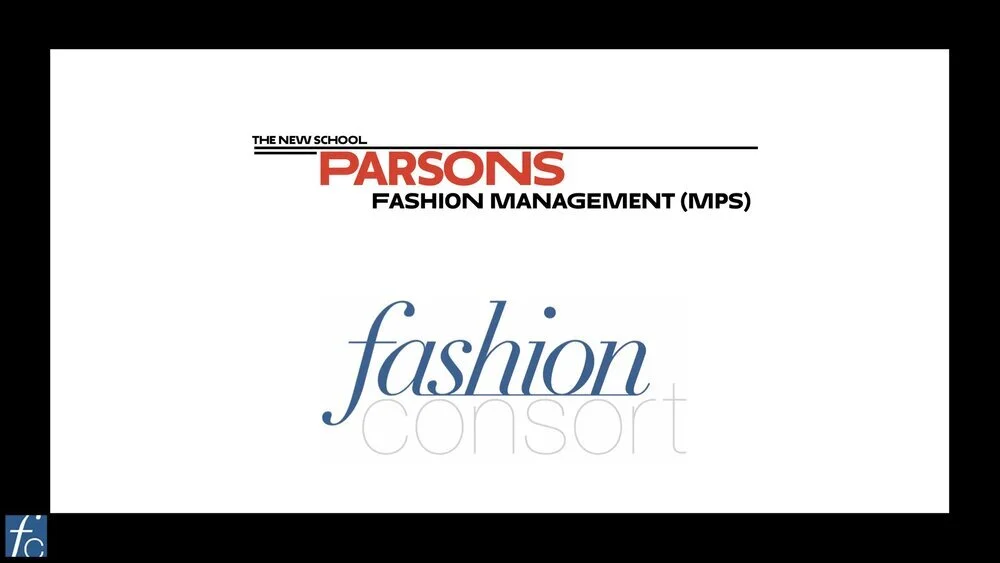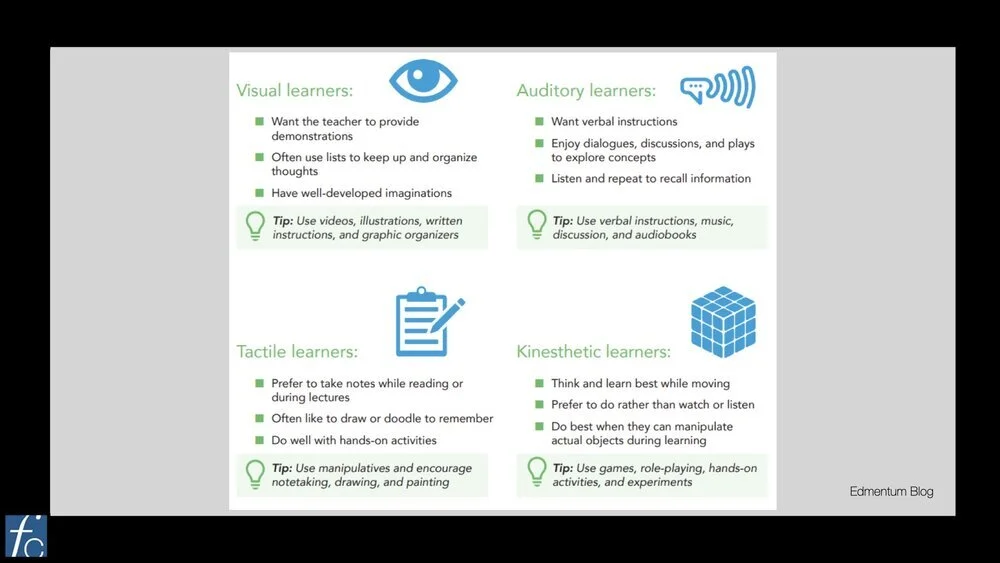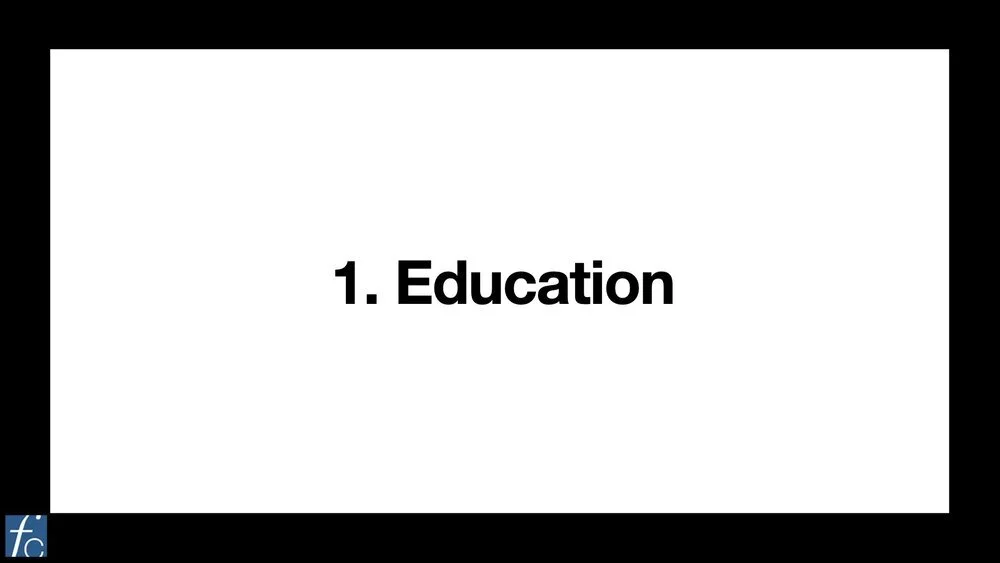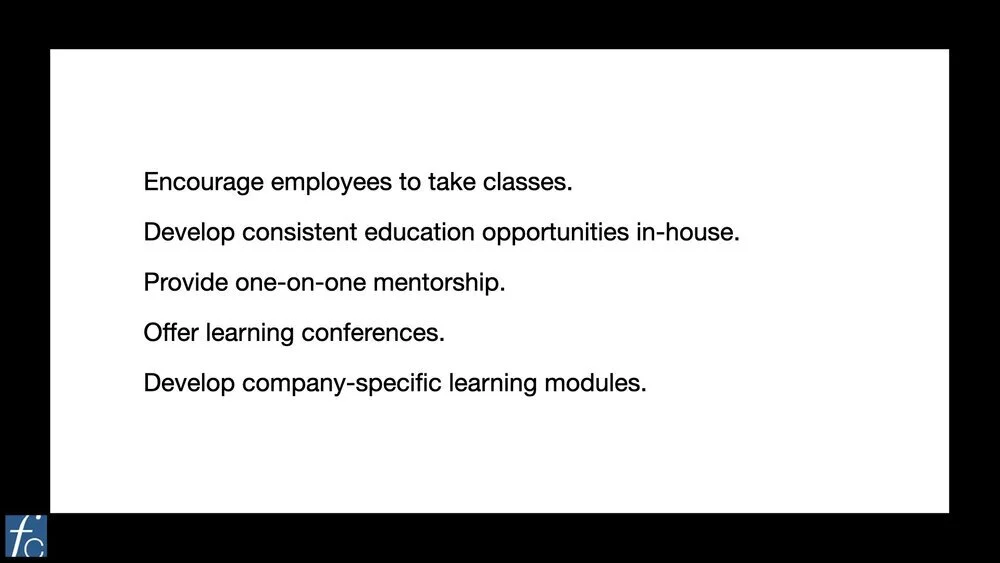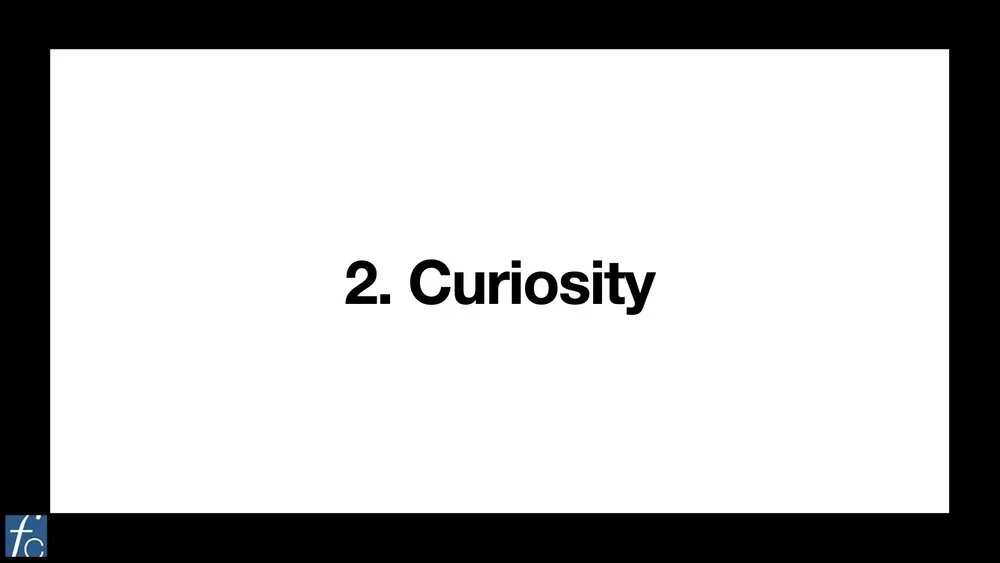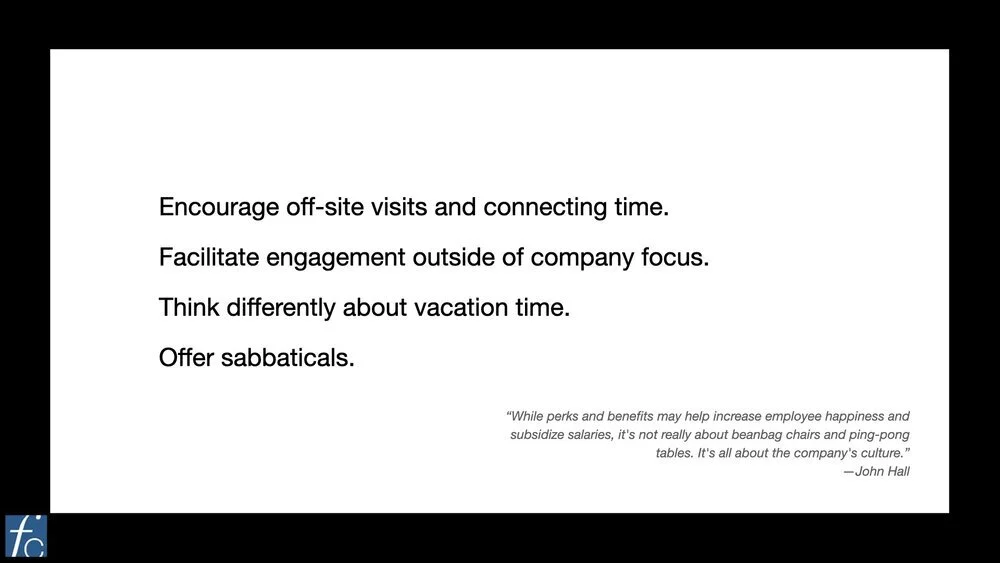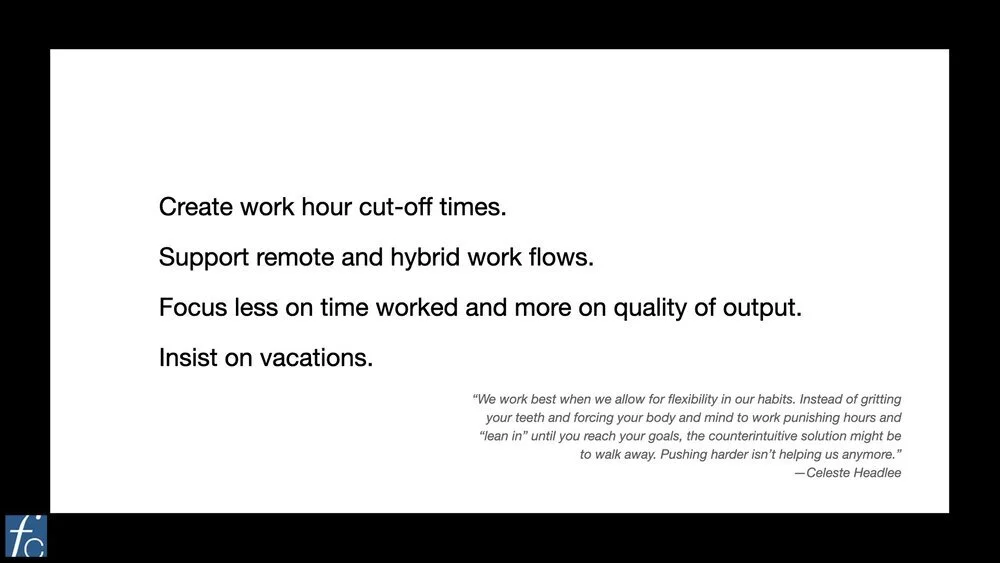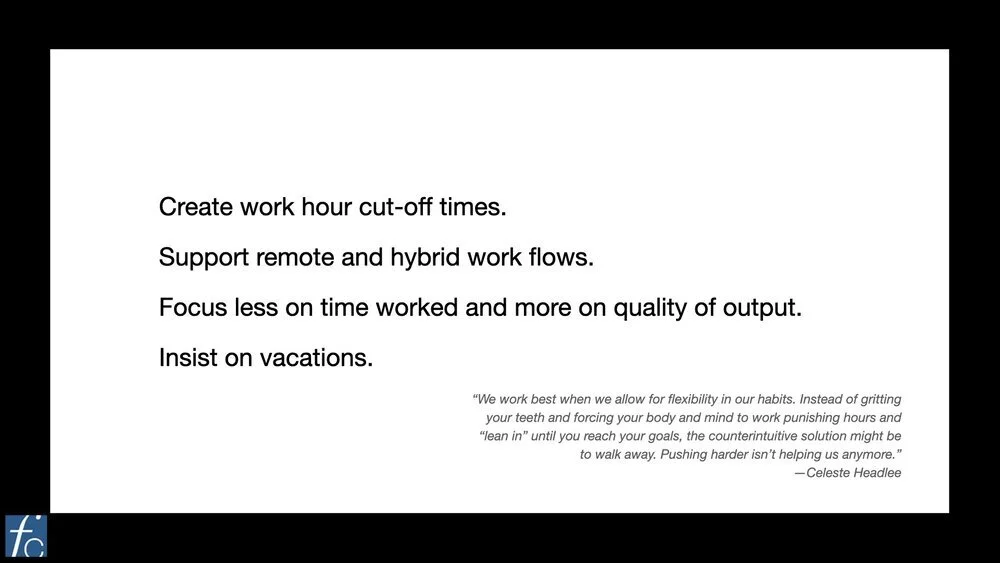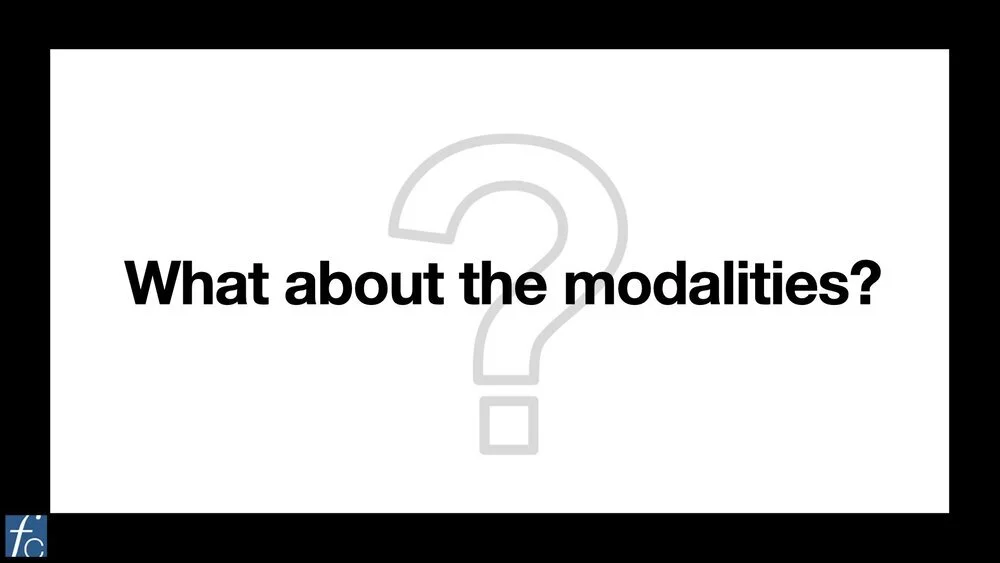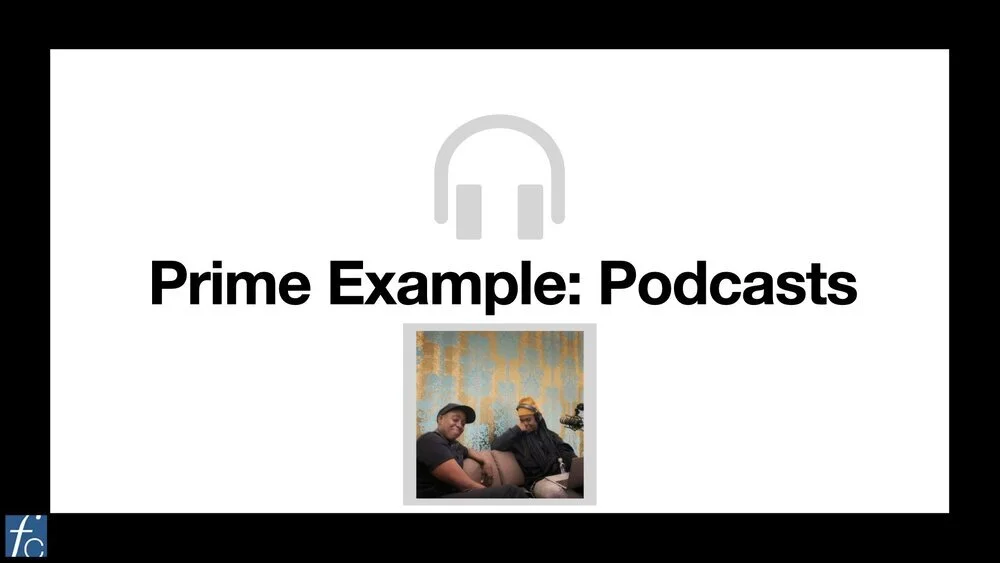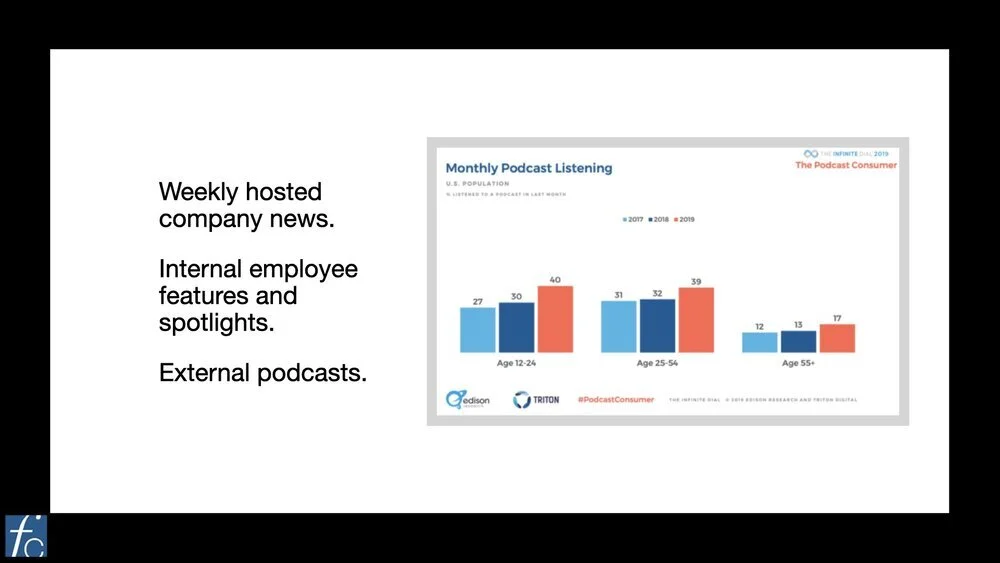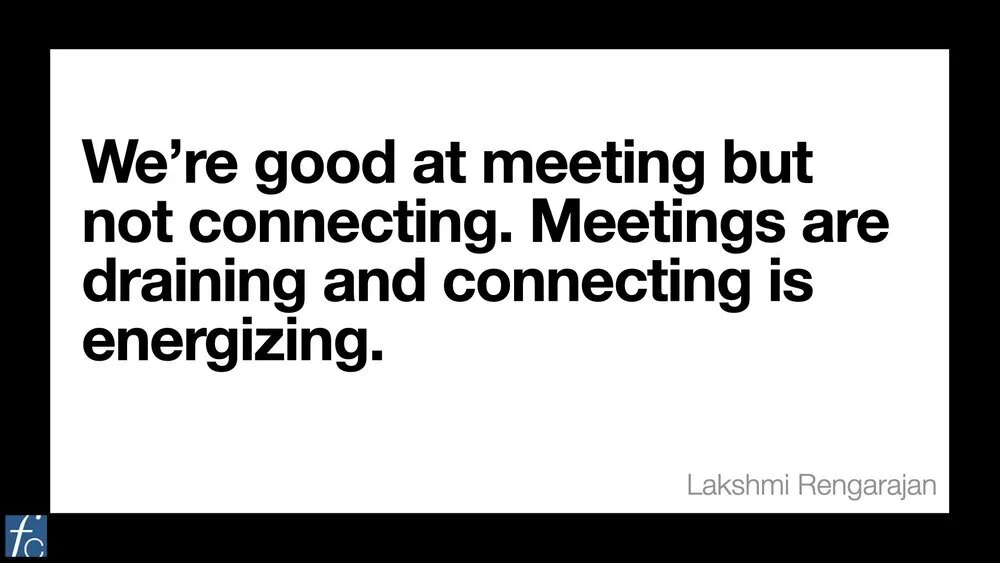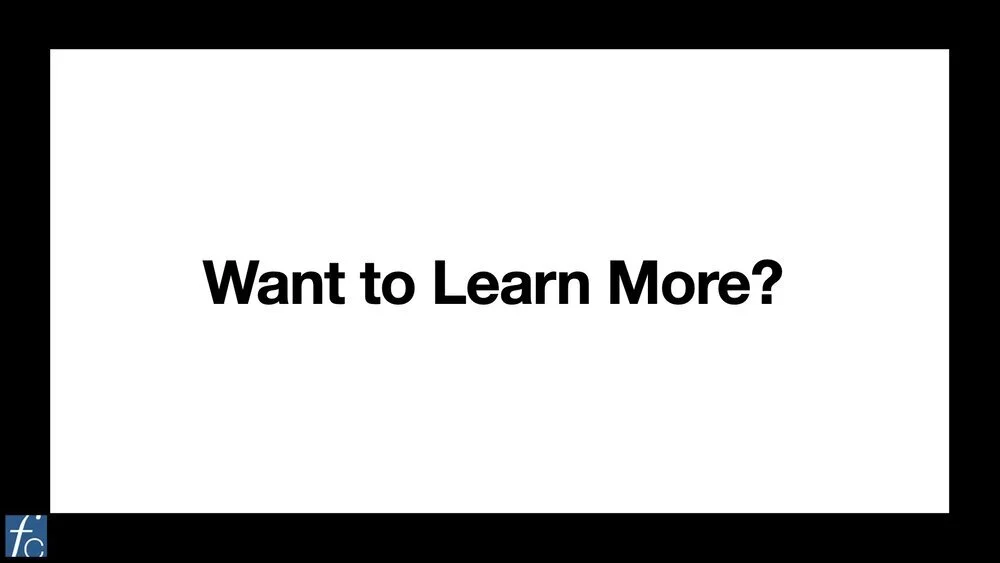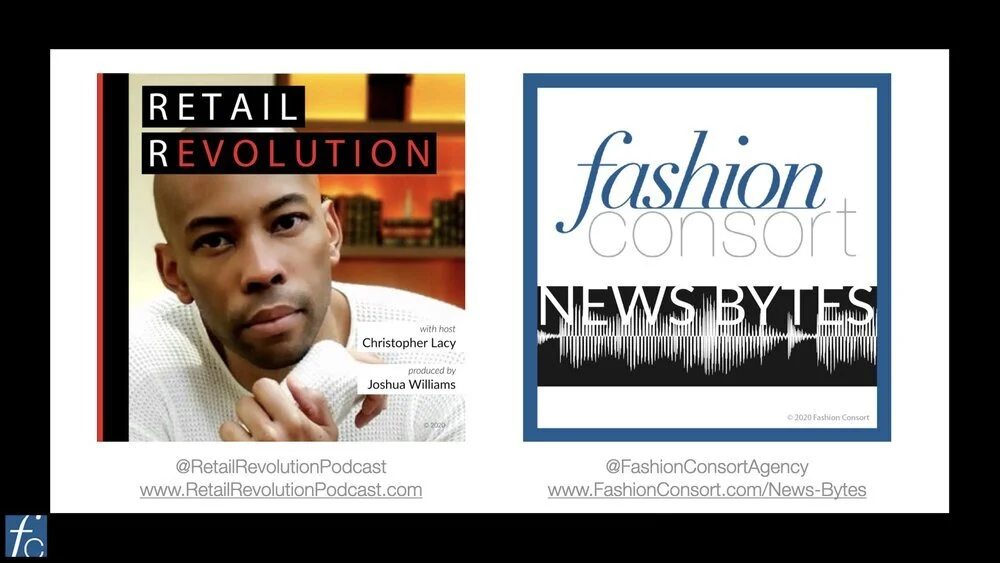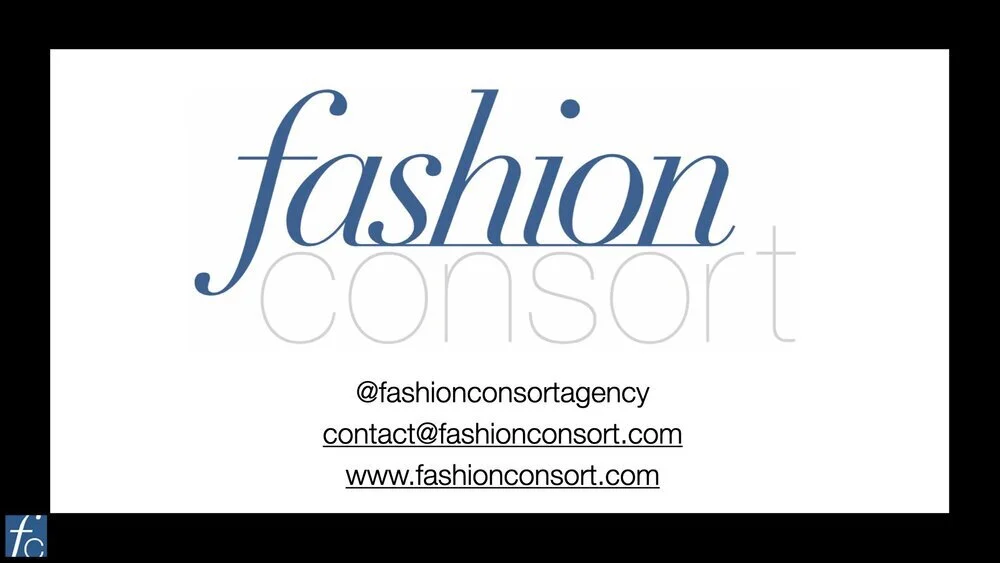Building Brand Values Virtually
A Livestream Presentation by Joshua Williams / May 21, 2020
WindowsWear
Access the video.
Raul Tovar: [00:00:00] Joshua Williams is an Associate Director and Assistant Professor of Parsons and the cofounder of Fashion Consort, which he'll be speaking more about. And he's one of the earliest supporters of WindowsWear, and we appreciate very much the relationship that we have with him. So please everybody welcome Joshua Williams. He'll be, giving us a conversation about building brands, values virtually. So please welcome Josh.
[00:00:27] Joshua Williams: [00:00:27] Hi everyone. It's really great to be with you on this live stream today. And, I don't know about you all, but I find that, I've been busier than ever, on more zoom calls than ever and more meetings than ever.
[00:00:38] And so I do appreciate all of you who have taken the time to be with us here at windows, where today. And thank you, to the, windows where a team, I have been a part of what they've been doing for so many years and just, it's great to see how it's grown and, and the, resource that it's become in the fashion industry.
[00:00:57] So my goal today is I was talking to everyone at windows where we wanted to maybe do something a little bit different than maybe what you've been hearing. And one of the things that I've been hearing from industry experts is the fact that fashion brands especially are having to kind of rethink or reset how they're going to do business post-Covid-19, and I wanted to focus on something more positive rather than negative because I think. So easy to get overwhelmed by all of the issues that we're facing. whether it's just a, you know, a real lack of sales and just the inability to engage with our customers and brick and mortar. So, I thought maybe just coming from a different perspective today, perhaps from a little bit more of an academic perspective.
[00:01:42] I could share some ideas with all of you no matter. If you're in leadership roles or if you're an employee or if you're a student. Just thinking about, perhaps, how we can think about the fashion industry and just work in general differently. And so today, as Raul said, we're going to look at, how do brands build value, and how do they do that virtually?
[00:02:03] And I'm going to start kind of with the framework and sort of set that up for you and give you some background on, how I see brands, providing value, but from an internal perspective, and I'll give you some examples and some, ideas of how to do that virtually. in the, in the bigger sort of overview that I'm going to provide.
[00:02:25] So I want to start first with just this idea of education and this pursuit of education. I don't know about you all, but, when I think of education, typically I think of, you know, whether it's high school or going to college or getting your master's degree, and I very rarely think about it in terms of my day to day.
[00:02:43] Yes, I love to read books. I'm a professor by trade, so I spend a lot of time doing, you know, my own research and thinking about how to prepare, prepare for classes. But I find that quite often, I don't really feel like I'm in an education mode. And, I think that's one of the key areas that I want to talk about today.
[00:03:03] What really is education and how can we think about that in terms of brand values, beyond just going to college. Taking a class, reading a book, and so on. yeah. Really at the core of education is sort of ongoing personal development and learning things or sort of expanding our knowledge base so that we have the tools that we need to, to make better decisions, to know how to interact.
[00:03:28] And obviously in this kind of time of crisis, this is come to the forefront. in addition, I think that education from my perspective as a professor is not just about what you learn or it's about how you learn and who you learn with. for me, I got my master's degree. This is going back many years ago, and I, and I, I learned a lot in that.
[00:03:50] But the, it's really the relationships that I created, the connections and the network, all over the globe. That has really served me well. as I've gone out into the fashion industry, worked, first as a professional and then, in the industry and then as a, as a teacher. so. I want to kind of talk a little bit about, and I will give you some examples a little bit later on about what that means potentially for education, but just in terms of a framework.
[00:04:16] Typically the way we think of education as we go to elementary school and then middle school and high school, and then we go to college and then we go get a job. And then if we get a little stuck in our career, or maybe we want to sort of get to the next level. We might come back and go to graduate school, and then obviously in some industries, to get a doctorate. And I think it's really important to kind of point out here that this idea of even getting a bachelor's education, let alone a master's education in fashion, is a relatively new idea. most of the, initial programs around fashion really didn't start becoming bachelor's programs until the...to the mid- nineties, and that's when colleges realized that, fashion was sort of going beyond its sort of family roots, right? It's family owned businesses and really becoming more corporatized and that there was a lot of opportunity to think about, fashion, especially in lifestyle industries. from the framework of an academic experience, that really looked at business, looked at philosophy, looked at, all sorts of different, areas and try to, essentially boy up what would be a fashion education.
[00:05:25] Nowadays, it's not unusual to see a master's degree, in, in fashion management, for example, which I'm a part of Parsons school of design here in New York city, or like fie global fascia management program at fit. But what's really interesting about this is that typically once we graduate from college, our goal is typically to stop learning.
[00:05:45] Right. And it's to start working and make money. And we have to, we have to get to work because we have to sort of pay back all those school loans and student loans that we have. and it's not to say that once we get that first job, we don't learn on the job. In fact, I think that's a very key part of any person's success is the ability to go from college into their first job and really be open to learning.
[00:06:09] Whatever they can, especially in the fashion industry where there are such specific skills at play. But typically, once we've gotten into our jobs and we've gotten into our careers, we start to develop expertise and we start to develop, a sense of what works and what doesn't work. So if you're a merchandiser, you start to understand, for whatever brand you're working with, the consumer and how they react when you, provide certain styles on the floor and, you know, whether it's narrow, deep or broad or what colors or whatever the trends are, you start to have a really good handle on that. And we start at a certain point. To start to coast and not coast in a bad or a lazy way.
[00:06:48] But we start, we have best practices, we have benchmarks. And our goal is simply to ensure that those benchmarks are met on a regular basis. And if, if, and also to grow that right, and to sort of make it better or to scale it. but we kind of stop learning sort of in the big picture way. We stop, potentially, reading books on philosophy or economic models because we don't have time.
[00:07:15] And sometimes it's hard to see how that relates back to our business. So, we tend to start to stick to things that work for us, and we just sort of rinse and repeat. And we hope that these things can continue to scale as we go. And sometimes we even become experts in our own fields and we become leaders in those areas.
[00:07:35] But we've stopped taking the time to really learn, beyond simply what we know and we, we start to settle, to a certain degree. There was a really wonderful article that came out in the Atlantic for David Brooks, and I just, it just kind of stopped me in my tracks. And this was a quote that comes from this.
[00:07:53] He discusses this idea or theory of maximum tastes, and he suggests that we're all intrinsically, so just that we all intrinsically know. that we are more interesting in our twenties than we are in our thirties and suggest that it's because in our twenties we're really engaged in all sorts of activities, even ones that sort of make us uncomfortable, right?
[00:08:14] Because we're just trying to get our feet underneath us, but by the time we hit our thirties, especially as we get into our forties we start to be less fun. And maybe that's because we start to. settled down. whatever that means. We move to the suburbs, we settle into our jobs. There's a lot of different things that, that certainly happen, but he, he suggests that we're sort of losing out, right?
[00:08:38] We're, we're losing out on the potential to think bigger, to really hit sort of our maximum potential. If we're not going beyond what it is we do every day. He recounts an example where he was teaching at the same time, some university students along with some executives and a, and I'll quote this because I think it's just perfectly said.
[00:08:59] He said, I assigned the same essay to both groups, an essay on Tolstoy by the political philosopher, Isaiah Berlin. And the college students found it so easy to read. and it's not that hard of an essay to grasp. He says. The 30 and 40 some things, however, really struggled. Their reading comprehension had it declined in the decade since college, and so was their ability to play with ideas.
[00:09:24] Their upper limit of their mind was lower than it used to be, and like I said, this sort of strap stopped me in my tracks because even as a teacher, I don't know about you this, this really resonates with me. Especially right now when we are pushing so, so quickly to move everything online for our students.
[00:09:42] And there's so many different meetings. I also at the beginning of the pandemic thought to myself, great, I'm going to have some time to read. And I even bought some books, on, Audible and I just had a whole sort of plan. I joined a moot, and had plans to, to sort of learn something for the first time in a long time.
[00:10:01]And alas, I have not yet completed that book. and I've gotten so busy and it was just a reminder again, of how even as an educator, it's really hard to educate myself. So while we put a lot of focus on learning while we're younger. We tend not to put that same focus, as we get, as we get older and as we get into our careers.
[00:10:24] But with the maximum theory taste in mind, when we stand to gain a lot more, especially when it comes to dealing with the issues that we have or especially around this pandemic, wouldn't it be great to have the mental facilities to be able to make better decisions, in our day to day lives?
[00:10:41] Another piece that I come back to often as part of this framework is curiosity and the ability to connect the dots. I really love, there's a book out there called curious by Ian Leslie, and in this book, he pushes against the idea, that random historical facts aren't useful. There's a lot of people out there that will say, what's the point of having history classes where you have to learn certain dates, for example, or when did the revolutionary war and things like that happen?
[00:11:10] And, and there's some, you know, obviously, knowing a date doesn't necessarily make ha have the same effect in your life, has maybe understanding of a particular, you know, biological theory, for example. But he suggests that actually all of those little fragments or those little bits and pieces of information actually all start to add up.
[00:11:32] And that those little bits of information will spark connections. And that those connections are what leads to new ideas and new innovations. And I've really, really sort of liked this, this concept. And I thought to myself, in the classroom, how do we take all of these sort of random facts,how do we share them with students and then use them to, in fact, create new ideas?
[00:11:57] And I think this is also the case when I'm working with clients in the fashion industry, is how do we keep employees curious? How do we get them taking all of the different facts that they have to create new ideas? I know for sure is that, students who really understand the history of fashion and understand.
[00:12:15] Why certain trends happened and when they happened and how they connect to everything from world war two to the birth of the television and things like that. That understanding those, those nuances actually make a big difference. When you're putting together an ad campaign, for example, or you're thinking about a new collection that you're going to drop. This is a quote from Ian Leslie, which just I think is very inspiring. whoever you are and whatever you start or whatever, start you get in life knowing stuff makes the world more abundant with possibilities and gleans of light, more likely to aluminate darkness. It opens the universe a little, and the truly curious will be increasingly in demand.
[00:12:55] And I was going back and kind of thinking about what I wanted to say today. I kept thinking, you know, if the crisis that we're going through right now and just this idea of being really curious, really curious, especially about our customers and what they're going through, how that might affect the kinds of products and services that we offer. to our customers and how things might potentially change if we were able to do that better.
The last bit of my framework, and then I'm going to jump into some ideas of how to, to tackle these as leisure time. There's also a really a, there's a correlation between increased learning and leisure time, so the more space that we have in our personal lives, the more time that we'll dedicate to thinking.
[00:13:43]to fantasizing, to creating, to ideating, to even imagining sort of different worlds. and I can't help but think that many of us, in some ways have had to slow down because we're not rushing, physically from one space to another, one meeting to another. And so we've had to really think about our time a bit differently.
[00:14:04] I'm horrified by my little phone messages that I get that tell me how many hours I've been spending. on my iPhone, in large part because of so many meetings that are taking place, but it's just brought to bear how much time I'm connected to my phone and how very little leisure time, that I have.
[00:14:22] So remember that book that I started reading at the beginning of the pandemic, the one that I'm still having finished, it's called do nothing, and it's by an author named Celeste Headlee. And this quote, just really capture sort of the essence of this book, which is that we know from research that we are more creative, we're more insightful, and we're generally sharper.
Learning and Brand Values.006.jpeg
[00:14:45] When we allow ourselves significant amount of leisure time, and I know for all of us Americans in particular who are here, it's as much as we love to go out and play. It's hard to take a vacation, especially when we feel the stress or the pressure to perform at work. So, she talks a lot about in this book, this idea of lazy time and that lazy isn't actually a bad thing, that lazy actually allows things to foment things to, to really, sort of trickle up or bubble up so that, new ideas and possibilities, are come up. And, typically these things need to be non-work-related. Now to put this into context of fashion, I'm in my 20-year career, so in fashion, the one clear thing is that the, the speed of the market. Continues to increase, in our races race to become more efficient.
[00:15:37] We've also increased customer expectations, especially around deliveries of product. And in many ways, it's very non-sustainable. this is primarily due to technology because with machine learning and artificial intelligence, we're now able to work faster than is actually humanely possible. Right. So, I want to say that again.
[00:15:59] Work is moving at a speed that isn't humanly possible. And yet as humans, we're sort of expected to keep up with that pace. We actually now measure, efficiency by the nanosecond when it comes to data. and for those of you who work in this space, there's just data pouring in every second, every moment that can be parsed and looked at to try to find some sort of trend that can help us in our business.
[00:16:28]and we spend a lot of time looking at that, that metadata. But at the same time, we primarily pro, benchmark human productivity by the hours that we work. Right? But that doesn't really measure quality. And so I think we have sort of this imbalance happening where, on the one hand, we're really expected to move at increasing speeds at the nanosecond level.
[00:16:51]and then we're sort of being, our, our quality of work is being based on an hourly perspective. Which means that some of us actually spend a little extra time at work. So to let our boss know that we care a little bit more, which, which might be less about working more and more about spreading our work out throughout the day to make it look like that we're busy.
[00:17:13] There's an ongoing conversation, especially in fashion about big data and how it's been taking a lead and a role in merchandising and planning allocation and all those different areas. And, and clearly, the more that we can get into that data, the more that we can be efficient in terms of what we deliver to the market.
[00:17:30] But there's also that question of subjectivity and quality and how do we ensure that the products that we're putting out there have a soul, have an emotion. And a, this is, this is something that a lot of companies are dealing with, especially I think as we go into this crisis further and we start to think about what does this look like at the other side?
[00:17:50] Because we can't just deliver products. There are people who are suffering on the other side, our customers, right? Who, who need and want support from the brands, whether it's just for respite from the craziness in their lives, or if they really truly need the product or service that you offer. I mean, obviously I don't even have to explain this screen.
[00:18:11] Each of these brands are dealing with, major ramifications of Covid-19. Although I would suggest that many of these companies, were, having hardships before and that this certainly just sped things up. But this is also primarily because millennial and Gen Z customers are really expecting customers to provide not only an experience, which we hear about all the time, but community and the ultimate luxury is being able to feel connected to other people in addition to speed and access.
[00:18:44] And that's really the new luxury in the marketplace. And so, brands that have spent so much time on sort of this white glove service and slow are now sort of struggling to figure out what that means. Let's say for a Neiman Marcus, if all of a sudden people want to be able to get in and get out of a store, and if, but at the same time they still want to have a sense of community.
[00:19:05] And what I find really interesting is that many executives, in these fashion companies are typically individuals who are nearing the ends of their careers. they're the ones that are at the helm of these companies, and they have vast amount of insight, perspective, experience at their fingertips, but at the same time, at that point in their life, they're probably not, engaged in day to day learning of new.
[00:19:29] Things. they're probably dealing primarily with solving issues on a day to day basis. And we've seen this, and I, and I work a lot with executives, especially from my physician at Parsons, of how do we help CEOs, CFOs, CEOs to think differently. In their busy day and try to balance out the needs of a business that's quickly changing with, the needs of a shareholder, right.
[00:19:56] And revenues and building and growth. so, but how do you do that? and also think about short term and long-term growth and innovation so that in three to five years you don't become obsolete. So, here's the exciting part. So, what does this all mean? How do we sort of put this all together? How does this relate back to brand values?
[00:20:16] I think that we now, more than ever, really as leaders, managers, and employees, no matter what level you're working at, we need to be working towards that maximum taste. We need to help solve the issues that we face today. And whether it's dealing with covert 19 or just really thinking about more sustainable supply chains.
[00:20:37] Engaging Gen Z, thinking about different niche markets like LGBTQ, how do we do that authentically? And if so much of our adult time is spent at the office and working, you know, what is a company's role then in providing employees a continuing education, what is the company's role in ensuring that there's opportunities to be curious and to connect those dots without the risk of losing your job?
[00:21:03] And what about leisure time? Right. Do companies have more that they can do to ensure that people actually have space to do things outside of work that will potentially bring back, more ideas and, more, innovation? So, the other little buzzword that we hear a lot too in fascia is authenticity.
[00:21:22] Because this is something that millennial and Gen Z companies really demand. They want to know that brand values right, are in line or in alignment with. With their values, the customer values. And one of the things is we hear a lot of companies that talk about these values, especially through marketing, but when it comes down to it, they're not really living those values.
[00:21:43] And, you know, internally, and I think some of those have come to bear throughout this Covid-19 crisis. the one that comes to mind is Amazon. That talks a lot about, efficiencies and production and how they treat their employees. And yet. on the other hand, there's a lot of employees that we're starting to see some, some pretty horrific stories coming out about health and safety issues, related to this pandemic.
[00:22:06] So in my two roles, I, as Raul said, I'm an Assistant Professor at Parsons. my, day to day work is primarily in the graduate space where I work with students who are coming back, to learn or to have the space to luxuriate in ideas and think differently. Most of our students are really coming back to school because they just feel like they're part of a machine and they want to be able to step off her a little bit and have a space to think and they want a place to have conversation.
[00:22:36] They want to have a place to take risks and they want a place to be able to challenge conventions. And so the ideas that really permeate from our classrooms are quite electric and really keep me going in an industry that I think can get you down pretty quickly. but our, our, our thoughts as, as professors are how do we make sure that these graduates can leave, Parsons and go back into their careers, more successful and really make a difference and initiate the change that they, they came to Parsons to, to engage in. Also, in my role at fashion concert, I started this company about 10 years ago and it was really a traditional consulting agency. And over the past few years, I've noticed more and more in my consulting activities that, I would get hired to do projects and I would.
[00:23:22] Bringing to bear, whatever it took. Right. I would do an audit. I would create a project or two to meet the demands of the, whatever the issue was that I was hired to, to come in and discuss or to solve. And then typically I would go away and then it was up to the company to kind of figure that out.
[00:23:41] And so often I watched as sort of the big ideas that I brought to the table or the project that I, that I created would sort of fall apart. And I always ask myself, well, is it me? Are the idea's wrong? Or, you know, what's going on? And I've realized over the last year is that any consultant can come in and put a project together and make change.
[00:24:03] But, if the people inside the company don't understand why that change has been made or why that project was done in a certain way, it's going to crumble because there is no sort of, intellectual support. For it. There's no true sort of understanding. So, I pivoted the agency a few years ago to really start thinking about how do we go in and work with companies and educate them on current ways of thinking on, new innovations, that we could actually teach employees, teach leaders.
[00:24:35] So then we could empower them to make their own decisions internally, and we could help to guide them in certain directions or to challenge them in certain areas, but ultimately leave it up to them to find the solutions that work best for them. And I think this is particularly important in the fashion industry because.
[00:24:53] I think we have a tendency to pick things that really work and just scale them as big as possible. And then we wonder two or three years later why it's not working anymore because the market has sort of moved on to the next big idea. Sometimes it's even faster than that. And so, one of the things that I'm noticing in working with clients today is that now instead of sort of solving a problem, now we're looking at the bigger picture.
[00:25:16] And we're actually, like I said, empowering. Employees to make decisions as they move forward and that they can be more agile, more agile, and more, empowered again to, to make decisions long after long after I'm gone. So, today I wanted to make some recommendations around this, this framework and thinking about how education, curiosity, and leisure time.
[00:25:39] Actually can serve as a way to, ground a company, in their values and really actively in their values. Not just saying it, not as a marketing thing, but really meaning it, and, and, facilitating that. So, before I jump in, I'm going to to, perhaps bore you for a couple seconds on, this idea of learning modality.
[00:26:02] And I think it's important just to understand this. I know when I started teaching, this was very useful. There are four kinds of learners. There are visual learners who see. There are auditory learners who typically hear well, and that's how they take an information. There are other people who are more tactile, they have to touch things, and then there's people who need to move, right?
Learning and Brand Values.013.jpeg
[00:26:23] And typically, each of us sort of have one area that we are better in or that serves us best, but often times it's a conglomeration of one or two or three things. that we need. What we do know as teachers is that you can't just do one, not only because you're not going to reach all the students in the room.
[00:26:42] But because it gets boring and it becomes stale and the same information just keeps getting pushed out in the same sort of modality. The thing that I think of as email, as we, we have, we now use email to do basically everything. And I think if, if we're all being a bit honest, it's hard to read a full email, especially a long emai in today's world. We are just too stretched for time. And reading can be very difficult. for a lot of SF, for busy. And for some people, reading is difficult in general. We need to see it and we need to touch it. So, I want you to keep these things in mind as I give some of my tips. So, let's start first with, education and, talk about some of the ways that companies can think about what organizations can think about education.
[00:27:31] And I'll give some examples. Of course. Of how this relates with, virtual and digital ways. So, I have just a couple of examples. The first one is encouraged employees to take classes. I think this is pretty obvious, but I've always found it surprising, how this is talked about but rarely done. And I really, truly believe that companies that, that, genuinely support, their employees taking courses, whether it's a Parsons, FIT or online.
[00:27:58] So many great courses online now, that this can continue to keep, employees engaged and learning and bringing new ideas. that means also that companies need to allow for company time for this to happen because if it's part of your values to be innovative, then that is part of company time to facilitate that.
[00:28:19] You also as a company need to think about how to allow. employees to come back with the information they've learned and to reinserted back into the company culture. so those are, so that everyone gets to benefit from the learning that's being done a second. Develop consistent education opportunities in-house.
[00:28:38] I think a lot of companies do this quite well, in that they'll have seminars, or they'll have, retreats or things like that. But what I want to focus on here is making sure that those are consistent and that employees know. That they can be part of them and that other meetings aren't scheduled over these learning times.
[00:28:56] And that, there's opportunities to, to learn that aren't necessarily connected to business outcomes. This is really an area that I'm working with, with my agency to develop education opportunities within businesses, whether it's virtual or digital, right, or in physical. In the physical space. and sometimes it's, it's not just, Hey, how do we come in and teach you how to do X, Y, Z?
Learning and Brand Values.015.jpeg
[00:29:20] It's bringing in a panel of experts that are talking about, let's say, a diversity and inclusion and how to think about that differently as a company. The other thing that a lot of companies are now doing, especially larger companies that have the ability to do this, are to bring in online learning directly into the company.
[00:29:39] And what that allows is to be a little bit more specific to the needs of the company so that, let's say. A beginning, merchandiser might have access to some advanced classes in retail math or algorithms and thinking like that. One of the great things about online learning is you can also do online quizzes and diagnostics, and that can lead to companies providing their own certification.
[00:30:02] A certification can be a great way to, identify people who are taking the time to learn, and it can be used as a way to promote and to engage and collaborate. One-on-one mentorship. I think this is really important. I know I don't have a lot of time, but I just want, one of the things that comes to mind here is allowing for what I call internal internships.
[00:30:23] What does that mean? Giving people in your company access to shadow, people higher up in the ranks, for example, or to shadow, people who are in different departments. it is so important to keep that learning ladder going within a, within a corporation or organization. And there's so much learning that can be done just in that simple, simple approach.
[00:30:45]and I believe that this really should be part of the offer of any new employee is, is that we are here to support you, to learn and that you get to be part or an apprentice, to people here at the office. And, and that also means that we need to teach people internally better how to be teachers. on online learning conferences, things like that are obviously, we're doing a lot of those right now in coven 19, and I think we're finally realizing that online especially, is a cheaper, easier way to engage people at all levels of the company, no matter their geography.
[00:31:17] And the last thing I want to mention here is there's a real opportunity right now for companies to think about how to create learning modules that relate to their services and products. One that comes to mind, for example, is closed 3d, which is the one of the top-level, sort of 3D design agencies.
[00:31:34] Parsons is looking right now to bring that very much into their programs. And so, let's say if Clo3D certainly has training programs, but do they have training programs that make sense for colleges? this is a great opportunity because of Clo3D can get into Parsons and that becomes part of our education.
[00:31:52] That means as they graduate, these students are ready and wanting to use, this, this product. so that, that allows the company to potentially grow. Curiosity. So, curiosity, a couple of things that come to mind here are encouraging offsite visits during, company time and allowing for connecting time that doesn't have to do with day to day work.
[00:32:13] And this could be as simple as making sure that certain hours of the day. the expectation is, is that people are out doing things and not stuck at the office. I always sort of hated the idea of Google, work environments, not because they're super cool, but because, part of where I get most of my inspiration is when I leave the office and take a walk-through Chelsea or wherever I am.
[00:32:36] And sometimes I even have my headphones in and I'm just paying attention. to the world around me. And there's ideas that common. So even just challenging companies to have employees actually leave the office for lunch could be a way to develop curious, opportunities for curiosity. Also, for facilitating engagement outside of the company's focus.
[00:32:58]so what does that mean, right? what sort of ancillary things help, Is it a book club, for example? Is it a film club? Is it offering language courses and things like that? A second language courses? Is it providing, I noticed little bit Liberty in London was offering some, knitting. They offer knitting classes, and then that's become, there was a great article in the independent about how it's becoming a dating hotspot for people in their fifties.
[00:33:22] But just, just kind of thinking about what are the ancillary things that people could do that kind of brings in a new energy into the office? And the last one I'll mention here is sabbaticals, which is a very academic idea. But what about companies allowing people to leave for one to three months to go out and sort of engage in the world, to learn a new skill, a new trade.
[00:33:43]to go, travel, whatever that might be. So, these are all things that I think of when I think of curiosity. Lastly, leisure time. I think this is pretty obvious, but, as Americans, as I said earlier, we have a hard time, sort of allowing for leisure time, whereas other countries. Really take this very seriously for most people.
[00:34:03] You know, taking the month of August is really important and a time to have some downtime. but it's really important for companies to think about cutoff times for emails, cutoff times for texts so that employees don't feel stressed about having to respond. Something as simple as that. one thing that I'm thinking a lot about, and I'm getting a lot of questions from businesses, is.
[00:34:25] You know, should we go to a fully online workflow? Should we, what does a hybrid look like? Do we need people to come back to the office? I think it's really important for companies to start thinking about that now and putting strategy in place to ensure that it's very clear because. I don't know about all of you, but sometimes I feel like if even though I could easily go into a zoom and provide all of the expertise that I can in that meeting, that if I'm not there in person, that there's a sense of discrimination against that, that I'm not sort of showing up in the full way.
[00:34:57] And so companies are going to have to think a little bit differently about that. companies need to insist on vacations and they also need to. Think about focusing less on time work and more on quality of output. I love, again, this quote from Celeste Headlee that in fact, sometimes leaning in or pushing it doesn't lead to a good output.
Learning and Brand Values.019.jpeg
[00:35:16] It actually just makes us more stressed out. And there's a lot of data, a lot of research out there that suggests that. we can do more if we, are, have some space to do that. Another little interesting piece of data suggest that, we typically as employees, finish whatever we have to and the time we're given.
[00:35:33] So if we have two hours to complete a project, we'll get it done. if we have four hours for the same exact project, we'll take four hours to get that project done. We'll, we'll go chat with some people in between, well, maybe shop on Amazon for a few minutes or, or whatever it might be. But we definitely sort of fill the container that we're given and so companies could potentially think differently about that.
[00:35:55] So what about those modalities I mentioned? One of the great things about virtual and digital is that it allows us to actually use some of those modalities in different ways. So, I mentioned email before. What if instead of an email, you have a company video that comes out, that is easy to, to watch.
[00:36:13] What if it's a podcast, which I'll mention a little bit here in second. And then thinking, you know, again, like how each of your employees might be a little bit different in how they take an information. So maybe it's both a letter, an email, and a video, or maybe it's a podcast and there's a transcript so that there's different ways for people to engage with that information.
[00:36:36] So I mentioned podcasts. This is an area that fashion concert has been very involved in in the last, year. What we're learning is that this is a technology. It's a low fi technology, but because of it is low fi, it's really a great way to share information. It's a great way to communicate company values.
[00:36:54] It's a great way to provide opportunities for education as well. You can listen in your headphones. It's very intimate and typically you can be doing more than one thing. So, you could be commuting, housecleaning working out. And so, then you're using two different modalities. You're being kinesthetic while you work out and you're being oral and you're listening to information.
Learning and Brand Values.021.jpeg
[00:37:15] And so we've been working with a lot of companies to think about how we can use this sort of low fi technology. as an approach to help educate employees and build brand values. Some of the examples, I won't tell you the, obviously the brand names, but we've been talking about, or building a weekly hosted company news.
[00:37:34]so then on a weekly basis, there's a hosted conversation about the news that's exciting and important to disseminate to, to, individuals in the company. We are working on an idea around an internal employee feature and spotlight podcast where we allow people in our or in organizations to share their expertise.
[00:37:55] So often I sit in meetings, especially at Parsons, where I'll sit with somebody and realize like the wealth of information they have. And I didn't even know that that's what they did until they mentioned it. So, a podcast could be a way to kind of feature a lot of different types of, of expertise in, in an organization.
[00:38:14] And additionally, obviously the one that we think of most is external podcasts. a lot of millennials, you see the graph here are, especially with millennials and gen Z. There's an uptick in listening to podcasts, in large part because you can listen to them while you're doing other things. but they also are a way to encourage the alignment of brand values.
[00:38:32] So in fashion, especially, let's take a streetwear, for example. It's not just about the sweatpants or the hat or the Supreme logo. It's about a sense of connection and community, like I mentioned earlier, and there's conversations that happen all around. You know, that concept of that a piece of clothing that are so much bigger than the piece of clothing themselves.
[00:38:55] So having a podcast that kind of delves into that and shares information and inspiration around that, or even how things are made. So, transparency being another buzz word, becomes a really great way to engage customers. I love this quote. This is something that I picked up from a webinar during coven 19, early on, which comes from lack Lakshmi.
[00:39:17] She says, we're good at meeting, but not connecting meetings or draining. And connecting is energizing. And I think this is so important, right? We spend so much time having meetings, but so very little time actually connecting ideas, connecting people. and there's so much energy to be had. If we can figure.
[00:39:37] All of that out. So, it's a very scary time. I think, for the fashion industry, there's a lot of unknowns and I think there is a real opportunity for businesses to, to reset and to think about, the kinds of businesses they want to have in the future. And that future is going to happen very soon. and that's very much around brand values.
[00:39:57] Again, that aligned both internally with your employees and your customers. for employees. I think this is also a moment of reckoning because they have to decide now how they want to spend their time, and to what ends. Right. And now that life has become all that more precious as we realize. Like this kind of thing can just take over and change everything at a moment's notice that there's a lot of different ways of thinking about things and being more expansive.
[00:40:23] Whether it is taking a webinar or participating in the live stream like this or watching a movie. I think this has been at least a moment in time where we're realizing there's opportunity to do more. I just want to share with you and then I'll open up for questions. two projects that we're doing with fashion concert.
[00:40:42] The first one is retail revolution, and this was actually developed for Parsons as part of a class would welcome and, and, recommend that all of you, come in and follow us on at, on Instagram at Retail Revolution podcast, or you can visit our website. This was our opportunity to have conversations with, experts in the field of fashion retailing.
[00:41:01] Not only to provide insight and expertise, but also to talk about COVID 19 and how it was affecting their businesses. Everything from a senior vice president at intermix, I Ron Thurston, who was, who joined us as one of our first guests to the CEO of beyond XR, who's, who's in digital, showrooms and digital, space, who's seen a major uptick in business. To Jon Harari, who is the CEO of WindowsWear, and I was just telling Jon before this, that, he's now in the top three most listened to episodes in the last week and we really appreciated him. And additionally, we have, we're doing a Fashion Consort NewsBytes.
[00:41:35] These are short form, episodes, typically three to four minutes, that share some ideas around some of these things that I've shared with you today. current news, sort of current thinking, that we hope are, is helpful. to those of you who are trying to make decisions that affect your overall businesses.
[00:41:52] So it would welcome you to come visit us@fashionconcert.com or to follow us at fashion concert agency, to get more information. and that is my contact information. And, I will open up to questions. I think Raul, you're going to be our, moderator.
[00:42:08] Raul Tovar: [00:42:08] I, I'd love to. Yes. That was fantastic. Thank you.
[00:42:11] Joshua Williams: [00:42:11] Thank you.
[00:42:12] Raul Tovar: [00:42:12] So much information in so, short time, in monitoring the Instagram because we're alive to check if people have questions and I would love to open it here in, in soon to see if anybody has a question. You guys can unmute yourself. If you're too shy, you can text it. You can type the question and I'll read it out loud. So,
[00:42:33] Joshua Williams: [00:42:33] Yeah. As we're waiting for questions to come in, I will say, if you are interested in either podcasts, they're both on Apple, Stitcher, Spotify, TuneIn. So, basically everywhere you can get it, you can, you'll find those podcasts there
[00:42:45] Raul Tovar: [00:42:45] I was always so timid. I was always scared to ask questions when I was a student, so I'm now, I had a Josh, such a great teacher here, so I want to let myself go.
[00:42:58] Let's see if people have questions here. Does anybody have a question?
[00:43:03] Joshua Williams: [00:43:03] Raul, while you're, you're looking funny that you should say that we're finding with online education that the student who typically sits in the back or you know, is always in the corner.
[00:43:13] Raul Tovar: [00:43:13] Yeah.
[00:43:14] Joshua Williams: [00:43:14] They don't get to do that online.
[00:43:18] Yeah. So, we've really had some. Great.
[00:43:20] Raul Tovar: [00:43:20] Have you, have you found like, have you find these, this new way of working or needs for the past month that is more exhausting for you as a teacher?
[00:43:33] Joshua Williams: [00:43:33] Yes, I think in large part...So, I was actually tasked last year to build a brand-new program for Parsons that was online.
[00:43:42] So I've had the benefit of, of really thinking what a, a ground up online learning, program would look like. and I come from by, and by the way, from sort of the e-commerce, that was sort of where I spent most of my time was in creative direction around eCom and digital content. And, so I, I really think of.
[00:44:01] Omni-channel retail the same as I do Omni channel learning. but one of the things that I think that we're all struggling with right now is that we sort of were forced to transition really quickly and that sort of upset all of our workflows and schedules. And so, at least from my perspective, I spent a lot of time not only doing my own work, but also helping my colleagues to kind of get up to the level that they need to, to be able to teach online.
[00:44:24] And, I think, you know, it's, it's pretty usual for me to have four or five meetings a day and it, and it's very tiring.
[00:44:33] Raul Tovar: [00:44:33] Okay.
[00:44:33] Okay. Pilar is asking, well, she's saying thank you for sharing. How do you think fashion and location will change from now?
[00:44:41] Joshua Williams: [00:44:41] Well, fashion education is going through a major shift right now because as I said earlier, fashion was always more of a skill and it was always typically learned on the job.
[00:44:53] So. It was not unusual until the mid-nineties to go get an Associates Degree, just to have some sort of basic level of college education and then jump right into a merchandising job, for example, because everything else, the employer would teach you, and every sort of company had their own way of doing things.
[00:45:11] I think the more and more the fashion's become part of corporate culture and the more and more that there's public shareholders and things like that, and, and the more and more that revenues. Are driving decisions. the more and more fashion education has had to shift from something that's very niche to something that, looks at more of a traditional MBA but then also understands the nuances of fashion.
[00:45:33] So from our perspective at Parsons, we're very much engaged in this idea, less about skill teaching because we think that happens on the job and much more about how to think differently, how to connect the dots. Like I was talking earlier. a lot of our students are coming as, as economists, as biologists, as heads of hotel chain, things like that, that you would never think would come into fashion, but they understand that there's a new connection between hospitality, hospitality, fashion, even church, you know, just in terms of how do you build a community or a local community. So, we're racing to kind of figure out what those things are and be at the forefront of essentially trying to open up those conversations for, new leaders.
[00:46:18] Raul Tovar: [00:46:18] Okay. Jackson Guillermo on Instagram is asking, do you believe, the source of materials and where the clothes are made must be addressed on the post, slash ads as a conversation, but not always mentioned.
[00:46:35] Joshua Williams: [00:46:35] Well, you know, I think we're moving towards the direction, especially now that safety is such a concern in health. after all the clothes we put on us, that it's on our biggest organ, skin. And so, there is a direct correlation to our health and, to the clothes that we wear.
[00:46:53] I think a lot of customers were not aware of that. I think, but, but, you know, if anything, we're seeing a lot of the same things that were happening in food, in health happening in fashion. Do I think it's required? you know, I don't, I think, I think we're moving in that direction and I think that there's a lot of value in that.
[00:47:10] I think what people don't realize is how complex the fashion industry is. and so the question becomes, what exactly is the information that people need that actually helps and how do we do it in a way that's ethical? even in the food industry, sometimes I feel like, what does organic even mean? So, I don't, you know, I might buy it for the marketing purposes, but I'm not wholly sure.
[00:47:34] I happen to be vegan, so I spend a lot of time looking at labels. but yeah, I think we're moving in that direction, but I don't know that we have a sentence. As an industry yet, or an agreement on what it is we should be transparent about.
[00:47:50] Raul Tovar: [00:47:50] Okay. Pilar is saying, I teach in the luxury fashion master at E S I C in Madrid and students came from anywhere but passion.
[00:47:59] Joshua Williams: [00:47:59] That's interesting. I, I've taught many classes at ISEM in Madrid and we're finding the same thing. A lot of people are coming into the fashion space because they see a lot of potential. And I would agree with that. I think there's a real opportunity to think differently in fashion. And I as a, as a professor, I love seeing people coming from different areas and bringing with them their own experiences and expertise.
[00:48:26] Raul Tovar: [00:48:26] Perfect. Does anybody else have a question before we wrap this up? please type it in.
[00:48:32] Jon Harari: [00:48:32] Hey, Josh it's Jon Harari. I've got two questions for you. Great. John. number one, you'd mentioned the speed of technology and, being managed in nanoseconds and the, you know, the, sort of human beings are measured an hour.
[00:48:49] How do you, how do you reconcile that for the future? Cause obviously, as you mentioned, it's just unsustainable. that's my first question. And then my second question, in regards to all the things that you had mentioned, building brand values virtually. you know, who do you think does it best? Or what's your biggest takeaway?
[00:49:05] Is there a certain country or company that you really think is a template for others to follow?
[00:49:13] Joshua Williams: [00:49:13] Great questions. Okay, so I'll start with the first one. nanoseconds versus ours. I mean, this, this really is the big question because the more and more efficient we become, and the more and more as an industry, we focus on technologies to help make decisions, the more and more there's going to be a chasm or a, you know, an imbalance between what we as human beings bring to the table, versus what the data is saying. And I'll give you a quick example. You know, the data at this point can pretty much tell us exactly what should be in any given collection at any given time.
[00:49:46] I mean, we can get down to that granular of information and know exactly when it should be delivered to store. We can have a pretty good sense of when it should hit the floor. We should, we have a pretty good sense of when the email blast should go out to support the collection. I mean, all of that in a, in a perfect world can, can give us exactly the information we need.
[00:50:04] But then the question is, is, but what about. If, if the algorithm is sort of building on what is already happening, what about the outliers? what about the new ideas? What about the trend that just sort of pops up randomly? for no apparent reason. Fashion in many ways was always very good at that because fashion, especially was very different by culture, very different by geography.
[00:50:28] And so all of these things sort of mixed and matched. I think. One of the things that we're going to have to watch, especially as we go more into data is, is sort of the mono- culture that comes out of algorithmic or data driven, fashion. Certainly, brands like fashion Nova or even Zara, you know, are benefiting from this.
[00:50:47] But on the flip side, I think a lot of luxury companies are realizing, that perhaps the going in the opposite direction to a more hands-on, less data driven. it might not lead to the same kind of revenue, but might actually, lead to more engagement and loyalty with their customer. And so in the long-term, it might be a benefit.
[00:51:07] So I think these are questions that, you know, that executives at all levels are having and trying to figure out. ultimately, I think that companies have to find a balance that works best for them. There is no one size fits all for any company. And. My, every time I work with different, you know, CEOs or executives, that's the first thing I say is we're not trying to be Zahra.
[00:51:26] We're not trying to be LVMH. We need to be you. If you're not you and you don't understand your customer, and you don't know how to communicate, whether that's digitally or in analog, you know, you're not going be around for very long. In terms of a company that's doing well, you know, I have to say, I just.
[00:51:43] Airbnb just keeps popping up on my radar. I don't know how many of you read the letter from Brian Chesky when he had to lay off a lot of his workforce. but it was, it really caught my attention as being extraordinarily human. and I think that one of the things that has made Airbnb successful, and I realized this is not fashion, it's hospitality, is it's just, it's, it's connection to, to people and the fact that they're relying on people out there.
[00:52:10] To share their homes and their intimate personal space. And I can't help but think that there's a lot to be gained in the fashion industry by looking at Airbnb, Airbnb as a model. and obviously Airbnb is very good at algorithms and figuring out how to provide the best options, to customers. and obviously they're also going through a lot of, of, they're going through a major crisis now.
[00:52:34] But I think I was just talking to somebody, actually, a colleague of mine who, who used the term that Airbnb appreciated pirates, meaning that they wanted their employees to go rogue and try things out and then come back and tell them if it worked or not, and that they wouldn't be at the risk of losing their job if they tried something crazy.
[00:52:55 ] I don't know about you, but in the fashion industry, the margins are so thin. That being told to just go try something and good luck is very unusual. But I think there's something to be gained from that.
[00:53:10] Raul Tovar: [00:53:10] Thank you Josh. I've heard. Patagonia has also like an amazing, an employee culture. Like they have so many perks and so many, the way that they do things is just. No corporate at all. I mean, it's still a corporate thing. You don't have to run a business part. I get up like they have unlimited vacations and days off and like sick days and work from home and maternity leave and all these things that, you know, always people that have corporate jobs that are like, so like fighting for it almost in any other company.
[00:53:45] Joshua Williams: [00:53:45] Wow. That's a great example of a, of a company that's true to their values. They are, after all, an outdoor company that's dedicated to nature, and if all their employees are stuck inside all day, then they're literally not working within their core value of the outdoors.
[00:54:05] Raul Tovar: [00:54:05] Okay.
[00:54:05] Joshua Williams: [00:54:05] Well. Thank you. I appreciate it. It was fun.
[00:54:07] Raul Tovar: [00:54:07] Thank you Josh. It was fantastic. Thank you so much for your time.

